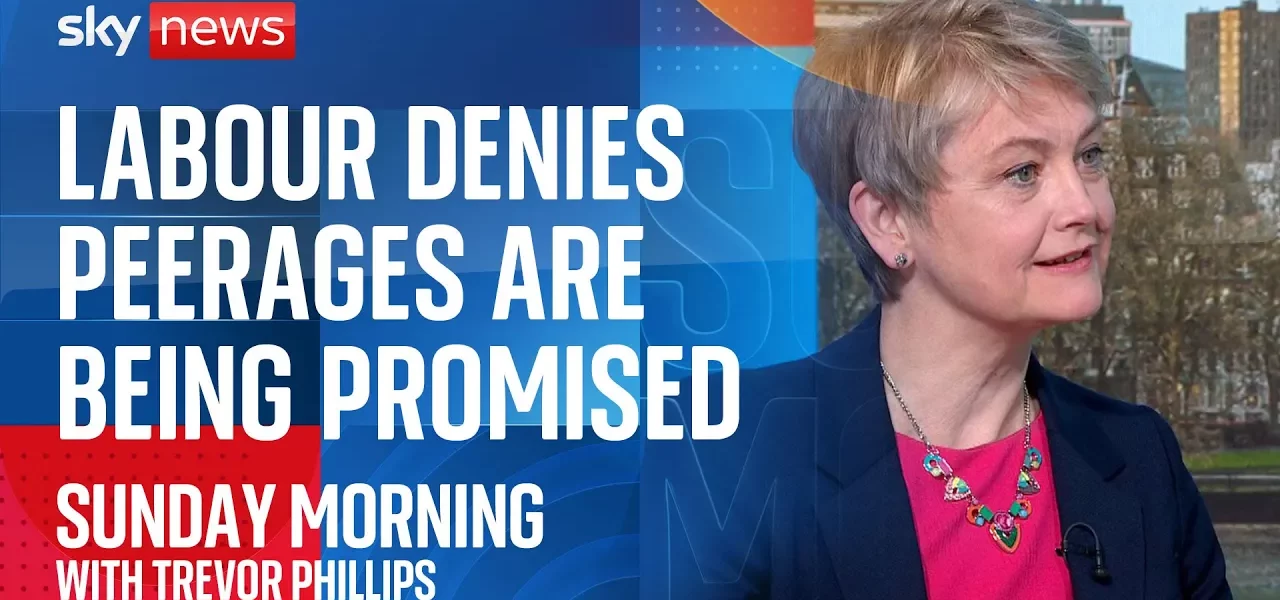Diane Abbott and the Labour Party: Current Political Dynamics

This article delves into the recent developments involving Diane Abbott, the Labour Party’s stance on key issues, and the implications for the UK political landscape. We explore the ongoing discussions about candidate selection, immigration policies, and the state of public services in the context of the Labour Party’s agenda.
Introduction
The political landscape in the UK has been significantly shaped by the actions and decisions of key figures within the Labour Party, particularly Diane Abbott. As a prominent member of the party, Abbott’s recent challenges have sparked discussions about fairness, candidate selection, and the broader implications for Labour’s future. This article provides a comprehensive overview of these dynamics, highlighting the party’s response to pressing issues such as immigration, healthcare, and education, while also addressing public sentiment and party cohesion.
Diane Abbott: A Trailblazer in the Labour Party
Diane Abbott has long been recognized as a trailblazer within the Labour Party, contributing significantly to its advocacy and public image. Her extensive campaigning work, particularly in addressing critical issues, has solidified her position as a vital figure in the party.
Impact on the Labour Party
Abbott’s influence extends beyond her personal achievements. Some of her notable contributions include:
- Exposing the Windrush scandal, which highlighted the injustices faced by immigrants.
- Advocating for policies that support marginalized communities within the UK.
- Strengthening the Labour Party’s commitment to social justice and equality.
Public Perception and Controversy
Despite her achievements, Abbott has faced criticism and challenges. Many party members and the public have expressed concerns over her treatment within the party, raising questions about fairness in candidate selection processes. The resolution of her recent challenges has brought some relief, yet the lingering questions about the treatment of key figures in the party remain a topic of discussion.
Key Issues Facing the Labour Party
As the Labour Party prepares for upcoming elections, several critical issues are at the forefront of their agenda. These include the state of the National Health Service (NHS), immigration policies, and education reforms.
The NHS Crisis
One of the most pressing concerns raised by constituents during door-to-door campaigning is the state of the NHS. Key points include:
- Escalating waiting lists and healthcare accessibility issues.
- Personal stories of individuals facing severe delays for essential medical procedures.
- A call for the Labour Party to prioritize healthcare reforms in their policy agenda.
Immigration Policy and Public Sentiment
The Labour Party’s approach to immigration has also sparked debate. With net migration figures reaching unprecedented levels, the party is advocating for a balanced and controlled immigration system. Key aspects of their stance include:
- Addressing the skills shortages in key sectors, including healthcare and engineering.
- Implementing training programs to reduce dependence on foreign workers.
- Ensuring fair pay agreements in sectors reliant on international talent.
Education Reforms and Equal Opportunities
Education remains a pivotal issue for the Labour Party. The proposed introduction of VAT on private school fees has raised concerns among families. The Labour Party argues that:
- This approach ensures fairness across the education system.
- Funds generated could be used to improve state education and recruit more teachers.
However, critics argue that such measures could disproportionately affect families seeking quality education for their children.
Conclusion
The recent developments surrounding Diane Abbott and the Labour Party reflect broader tensions within UK politics. As the party navigates critical issues such as healthcare, immigration, and education, it must also address internal dynamics and public sentiment. The path forward will require a delicate balance of advocating for progressive policies while maintaining party unity and addressing the concerns of constituents. As the political landscape evolves, it’s crucial for the Labour Party to remain focused on the needs of working people and to position itself as a viable alternative to the current government.
For more insights into the Labour Party’s policies and the political landscape in the UK, be sure to explore our related articles on healthcare reform, immigration policies, and educational equity.
“`




